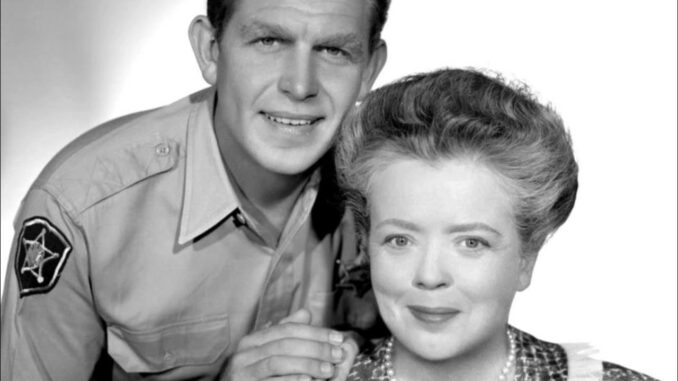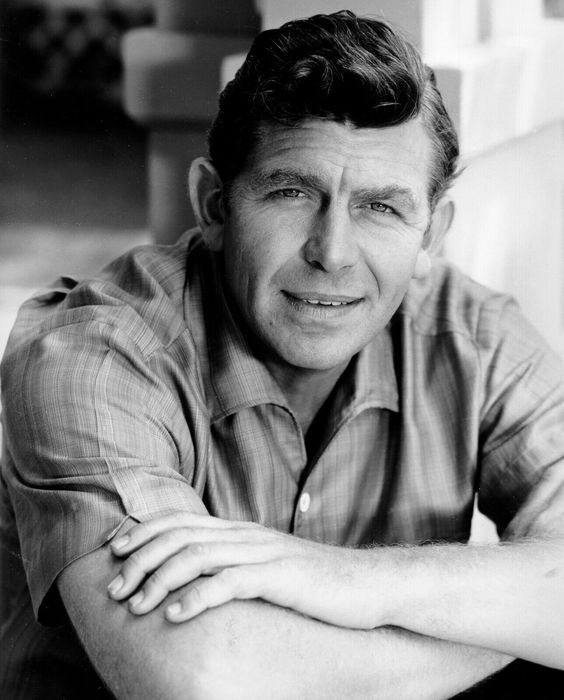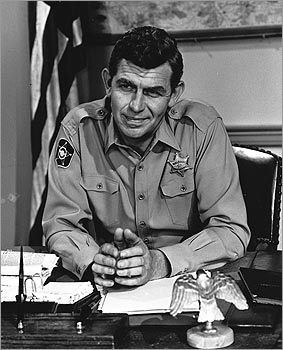
Just because it’s a show about the simplicity of everyday life doesn’t mean that The Andy Griffith Show doesn’t go through changes during its time on the air. In fact, one of the main characters, Sheriff Andy Taylor, goes through one of the more noteworthy changes throughout the beginning of the show. The character shifts from one of silliness to something of more serious substance.
This was a direct decision from Griffith himself, according to The Andy Griffith Show Book, by Richard Kelly. Kelly quoted one of the producers and writers of The Andy Griffith Show, Aaron Ruben, who explained, “One day he [Griffith] said, ‘My God, I just realized that I’m the straight man. I’m playing straight to all these kooks around me.'” Ruben also said that Griffith once confessed, “You know, I find it hard to look at the first year’s show on reruns.” Rubin remarked, “He didn’t like himself — and he was right, and in the next season he changed, becoming this Lincolnesque character.”
Producer and director of the series, Sheldon Leonard said that the shift was for the benefit of the series, and said, “Andy himself was established as a man of solid, rocklike common sense, and could not, therefore, by definition, make problems and troubles – so we had to have people who did. Otherwise, you got no comedy.”
What this meant was that Griffith provided unwavering support for all of the comedic characters around him by other exaggerated characters as the straight man. However, the character of the straight man can often be confused as boring, considering it’s a much more subtle sort of man to play as opposed to all of the more colorful actors alongside him. Griffith was capable of comedy, as evidenced by his previous roles like in No Time for Sergeants, but one might wonder if he felt he was missing out on something wonderful.
According to the book, Andy and Don: The Making of a Friendship and a Classic American TV Show by Daniel de Visé, Griffith said, “To be a straight man is a wonderful position.”
In fact, Griffith felt that he was getting an added benefit that others might not have previously seen. He said, “You are privileged more than anyone else — to be in the scene and to watch it, too. I could watch Don Knotts and Frances and the rest with a thousand times more delight than anybody in the audience ever could because I’m between the camera and you on most shots and I’m closer to Don’s eyes than you can ever be. There’s no more joy than that. I can tell you right now.”
